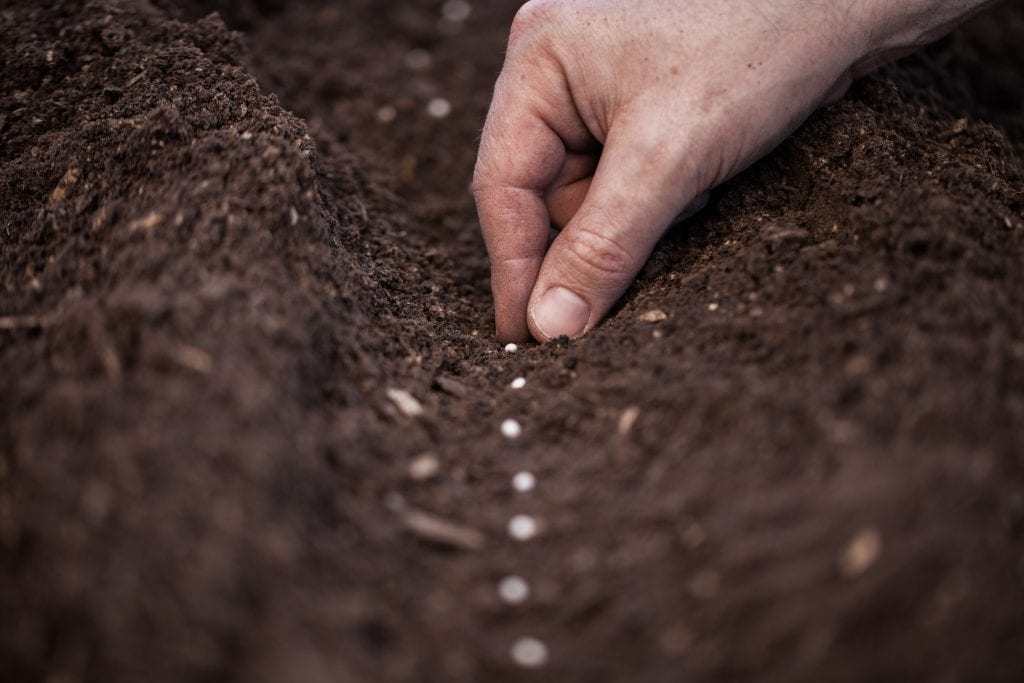It looked like a weed – the tiny sprig of green that sprouted in the crack of my front walkway. I passed it for days as I rushed out the front door headed for work. With each passing, the growing leaves reminded me to add “lawn care” to my family’s to do list.
But, then I noticed something. The leaves seemed to resemble the marigold leaves in the adjacent flower bed. Sure enough a little orange blossom greeted me one morning, and the plant went from a nagging reminder to a curious fascination. It kept growing. More blossoms sprang up. Finally, fearing the roots’ disruption to the pavement, I plucked the plant from the crack.
Now, the marigolds sits on the desk in my office, planted in an old bottle filled to the brim with water. More than a curiosity now, the plant has become very important to me. It gives me a bit of hope.
I confess that sometimes my ministry feels very small when compared to that of others. I serve a small, aging congregation in a relatively small town in Middle America. My ministry feels even smaller when compared to the enormous brokenness in our world. More times than I care to admit, I simply don’t believe I do enough. My words seem inadequate when faced with the sorrow of people I encounter. My sermons seem useless when faced with ignorance or apathy sitting in some of the pews. My mission work seems tiny when faced with the injustices streaming on 24 hour news channels. I hope that what I do as a pastor makes a difference, but I can’t always be sure.
And yet, lately, I have been reminded of the potential of something small. Jesus said that the kingdom of God is like a tiny seed planted in the ground. “Although it is the smallest of all seeds, yet it grows into the largest of garden plants and becomes a tree, so that the birds of the air come and nest in its branches.” (Matthew 13:32)
God says tiny seeds are never unimportant. Small seeds of the gospel planted in the cracks of life can take root. They begin to grow, becoming so large that they threaten to disrupt the very foundations of communities and people’s souls. What looked like nothing, can change into a new form of life that is truly beautiful.
So keep tending to the seemingly small seeds, fellow ministers, and trust that God is tending to them too. You never know what ground God might be disrupting deep beneath the surface.
Rev. Amy Wiles, Pastor, First Presbyterian Church, Waterloo, IA and Macedonian Ministry Northeast Iowa Cohort Member
Rev. Amy Wiles serves as lead-pastor at First Presbyterian Church in Waterloo, IA, where she enjoys worship and preaching, studying Scripture with church members, and working with partner ministries in the Cedar Valley, particularly neighbors in the Walnut Neighborhood. She is a member of the Macedonian Ministry Cohorts in Northeast Iowa Presbytery. Her partner is John Wiles and she is the proud mother of Ruthie (6 years) and Thomas (5 months).









No Comments